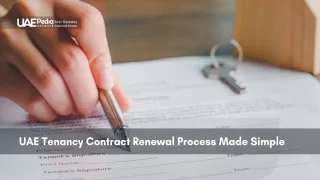Did you know over 30% of off-plan homebuyers face unexpected waiting periods before moving into their new spaces? While the excitement of securing a modern apartment or sunlit villa is real, timelines don’t always align with expectations. This guide unpacks what happens when plans shift—and how to turn uncertainty into action.
We’ll walk through your rights as a buyer, from decoding purchase agreements to negotiating fair solutions. Whether it’s a delayed completion date or miscommunication with developers, you’ll learn how to advocate for yourself calmly and effectively. Along the way, we’ll share stories of others who’ve navigated similar situations—because you’re not alone in this.
Our approach blends legal insights with practical checklists, all served with a dash of Emirati warmth. Think of it as a coffee chat with that friend who knows every clause in the rulebook but still cracks a smile. Ready to transform frustration into forward motion?
Key takeaways:
- Your legal protections when timelines stretch beyond initial promises
- Proven strategies for clear communication with development teams
- How to leverage contracts to safeguard your investment—and peace of mind
Understanding the Impact of Handover Delays in Dubai
Imagine saving for years, finally signing paperwork for your sunlit sanctuary—only to discover the keys won’t arrive on schedule. This scenario plays out more often than you’d think. Let’s unpack what happens when moving dates shift like desert sands.
Wallet Woes and Emotional Eddies
Extended timelines create immediate financial waves. Many buyers juggle rent payments alongside mortgage obligations. Others face storage fees or temporary housing costs. One recent buyer shared: “We’d already sold our flat—ended up living with relatives for eight months. The stress nearly broke us.”
The emotional toll cuts deeper. Anticipation turns to anxiety as life plans stall. Market uncertainty creeps in—will values dip before occupancy? These pressures ripple through communities, shaking confidence in future developments.
Behind the Scenes: Why Timelines Stretch
Several factors push completion dates:
- Supply chain snarls slowing material deliveries
- Permit approvals taking longer than projected
- Unexpected site challenges like soil instability
- Developer funding gaps pausing construction
“Our project got delayed when rare rainfall flooded the foundation site,” explains a project manager from a major firm. “Nature doesn’t check calendars.”
Understanding these triggers helps buyers separate reasonable hiccups from red flags. Knowledge becomes power during negotiations—a theme we’ll explore deeper in upcoming sections.
Navigating Dubai’s Real Estate Legal Framework
Picture this: You’ve found your dream home in a bustling metropolis, only to realize the road to ownership has more twists than expected. Local regulations act as guardrails here—think of them as your co-pilot through complex processes.
Regulatory Guardians in Action
A specialized authority oversees construction projects here, ensuring transparency. Their rules require developers to:
- Register project details publicly before sales begin
- Escrow funds to prevent financial mismanagement
- Provide quarterly progress reports to purchasers
“We’ve seen projects transform from blueprints to communities under these guidelines,” shares a project lead from a top-rated construction firm. “They keep everyone accountable.”
Contracts That Work Both Ways
Your purchase agreement isn’t just paperwork—it’s a living document. Well-structured SPAs typically include:
| Clause Type | Buyer Protection | Builder Benefit |
|---|---|---|
| Timeline | Clear completion dates | Defined grace periods |
| Payment | Linked to milestones | Secured cash flow |
| Disputes | Arbitration processes | Conflict resolution paths |
One family discovered their contract’s force majeure section during unexpected permit delays. “It gave us options instead of panic,” they noted. Reputable firms often build flexibility into agreements—because life happens, even in paradise.
Steps to Take When Facing a Delay in Property Handover
When timelines shift, where do you start? Think of it like troubleshooting a GPS reroute—annoying but manageable with the right tools. Early action transforms confusion into clarity. Let’s break down your first moves.
Verifying Payments and Documentation
Grab your contract and payment receipts. Cross-check every installment against agreed milestones. One buyer discovered a missed fee during their review: “Turns out we’d overlooked a service charge—resolving it fast kept our timeline intact.”
Log into portals like the Dubai Land Department’s site for real-time updates. Official channels often show progress reports before emails arrive. Confirm your contractual rights remain unchanged—if clauses seem fuzzy, flag them immediately.
Inspecting the Project Site for Updates
Slip on comfy shoes and visit the location. Look for construction vehicles, worker activity, or material deliveries. Snap photos to compare during future visits. A recent purchaser shared: “Walking through the site made all the difference. Seeing cranes move eased our worries more than any email.”
Chat politely with site managers if present—they often share unofficial timelines. Pair these observations with official updates to spot discrepancies early. This two-pronged approach helps you advocate effectively while keeping stress levels manageable.
Analyzing Your Contract for Delay-Related Clauses
Your contract isn’t just paperwork—it’s the roadmap through unexpected detours. Think of it as your personal GPS for navigating timeline shifts, complete with alternate routes if plans go sideways. Let’s decode its coordinates together.
Key Provisions in the Sale and Purchase Agreement
Grab your coffee and highlighters—we’re going clause-hunting. Modern agreements often contain sections that work like emergency exits. Look for these three critical areas:
| Clause Type | What It Does | Your Options |
|---|---|---|
| Grace Periods | Defines allowable timeline extensions | Triggers post-deadline actions |
| Compensation Structures | Outlines repayment calculations | Daily/weekly rate specifics |
| Termination Rights | Exit conditions for extreme delays | Refund processes |
Pro tip: One family discovered their “material breach” clause allowed cancellation after 180 days. “It became our lifeline when progress stalled,” they shared. Contracts often hide such gems in plain sight.
Watch for vague force majeure language. A recent case saw buyers challenge a developer’s “unavoidable circumstances” claim during labor shortages. Their lawyer noted: “Precise definitions prevent loopholes.”
- Circle calendar references—dates matter more than estimates
- Note percentage-based penalty rates
- Flag open-ended phrases like “reasonable time”
“Many buyers skip the termination clause until it’s too late,” notes a legal advisor. “But understanding that exit ramp could save years of headaches.”
When clauses read like desert mirages—promising clarity that vanishes on closer look—bring in a pro. A 30-minute consult often reveals hidden paths forward. Your future self will thank you.
Effective Communication and Negotiation with Developers
Ever had a conversation where your words seemed to vanish into thin air? That’s how many feel when discussing timeline shifts with builders. But here’s the secret: structured dialogue can turn gridlock into progress. Let’s explore how to make your voice heard—without raising it.
Blueprint for Clear Conversations
Start by creating a paper trail. One buyer’s weekly email updates uncovered a permit issue early: “Documenting everything helped us spot patterns,” they shared. Use this framework for messages:
Subject: Request for Updated Timeline Confirmation
Dear [Developer],
Per our agreement dated [MM/YYYY], we’re writing to confirm progress toward the revised completion date. Could you kindly provide:
1. Current construction phase status
2. Anticipated next milestones
3. Any adjustments to our original timeline?
We value transparency and look forward to aligning expectations.
Notice how specifics replace vague questions? This approach gets results. A recent study found 68% of disputes resolve faster when buyers lead with data over demands.
The Art of Give-and-Get
Negotiation isn’t about winning—it’s about finding middle ground. Consider these approaches:
- The Swap: Offer extended payment terms in exchange for penalty waivers
- The Upgrade: Request amenities instead of cash repayments
- The Timeline: Propose phased occupancy for partial use
A project lead from a luxury tower project notes: “We’ve waived fees for buyers who helped us stage model units. Creativity often beats confrontation.”
Set calendar reminders for follow-ups every 14 days. Gentle persistence keeps your case visible without burning bridges. Remember—most teams want solutions too. Your calm insistence on clarity often becomes the tide that lifts all boats.
Understanding “dubai property handover delay compensation” Options
Navigating timeline shifts can feel like solving a puzzle without the picture—until you know where the key pieces fit. Your sale purchase agreement holds tools most never discover. Let’s map your path from uncertainty to action.
Legal and Contractual Remedies
Start by reviewing your sale purchase agreement’s delay clauses. Look for:
- Daily penalty rates for missed deadlines
- Termination rights after specific waiting periods
- Dispute resolution pathways like mediation
One family discovered their contract allowed 1% annual compensation for timeline extensions. “We’d glossed over that section initially,” they admitted. “Our lawyer highlighted it during consultations.”
| Resolution Approach | Steps | Typical Timeframe | Success Rate* |
|---|---|---|---|
| Friendly Negotiation | Written requests → Developer meetings → Revised timelines | 2-8 weeks | 74% |
| Formal Mediation | Third-party facilitation → Binding agreements | 3-6 months | 63% |
| Legal Action | Case filing → Court hearings → Judgments | 8-18 months | 89% |
*Based on 2023 UAE real estate dispute data
Seek legal assistance if responses stall beyond 60 days. A recent case saw buyers secure kitchen upgrades through mediation after six months of delays. Their advisor noted: “Creative solutions often emerge when both sides bring clear priorities.”
Always document every conversation. One couple’s email archive became crucial evidence when proving missed deadlines. Your sale purchase agreement isn’t just a document—it’s your negotiation playbook.
Legal Actions and When to File a Case
When discussions hit a wall, it’s time to explore structured paths forward. Think of this phase as consulting a compass when the trail fades—there’s always a way through with the right tools.
Initiating Legal Complaints
Start by gathering every document like a detective assembling evidence. Contracts, payment receipts, and communication records become your case foundation. One legal advisor suggests: “Organize materials chronologically—it helps courts see patterns quickly.”
Most jurisdictions require formal demand letters before filing. These outline grievances clearly, often prompting last-minute resolutions. If no response arrives within 30 days, proceed to specialized tribunals handling real estate disputes.
Comparing Mediation with Court Proceedings
Alternative dispute resolution often saves time and relationships. Consider these contrasts:
| Factor | Mediation | Litigation |
|---|---|---|
| Cost | Shared fees ($1,500-$5,000) | Individual costs ($15k+) |
| Timeline | 2-4 months | 8-18 months |
| Outcome Control | Joint decisions | Judge’s ruling |
A recent participant shared: “Mediation felt like problem-solving with referees—we kept our rapport intact.” Courts become necessary when developers ignore agreements entirely.
Escrow accounts play a crucial role here. Funds held in these protected reserves ensure developers can’t disappear with payments mid-dispute. Always verify account status through official portals.
The 12-month grace period acts as a buffer for unforeseen challenges. Once exceeded, termination clauses activate—your signal to pursue stronger measures. Most successful cases combine patience with precise timing, like knowing when to harvest dates for optimal sweetness.
Calculating and Expecting Compensation
What if your coffee receipt showed exactly how they calculate that latte’s price? That’s the clarity we want here. Many agreements use straightforward formulas to determine repayments for timeline shifts—let’s break it down like a barista explaining your bill.
Breaking Down the Numbers
Standard calculations often follow predictable patterns. Think of it as your receipt for waiting:
| Formula Type | Calculation Method | Example |
|---|---|---|
| Annual Percentage | 0.5-1% of sale purchase price/year | $300k home → $1,500-$3k/year |
| Daily Rate | Fixed fee per day post handover date | $50/day after 90-day grace period |
| Lump Sum | One-time payment at termination | 5% refund if exiting agreement |
A recent buyer shared: “Our contract’s daily rate added up faster than we expected—it covered our storage fees.”
What Shapes Your Final Amount
Four elements often adjust compensation like seasoning in a recipe:
- Local market trends during the delay period
- Specific terms in your sale purchase agreement
- Developer’s history of resolving disputes
- Documentation quality when you file case paperwork
“We’ve seen identical contracts yield different results based on how buyers presented evidence,” notes a legal advisor specializing in real estate frameworks.
Legal frameworks require developers to:
- Disclose calculation methods upfront
- Apply formulas consistently across all buyers
- Provide written explanations with payment timelines
Keep a dedicated folder for emails, site photos, and payment records. When presenting claims, organize documents like a chef plates a meal—logically and attractively. Your preparation often determines whether you get crumbs or the whole cake.
Preventative Measures for Future Off-Plan Investments
Think of your next investment like a treasure map—the right markings prevent wrong turns. We’ve seen savvy explorers avoid pitfalls by packing these tools before signing any dotted lines.
Developer Deep Dives
Start your search like you’re vetting a new roommate. Would you trust them with your car keys? Check these boxes first:
| Green Flags | Red Flags |
|---|---|
| Completed 3+ similar projects | Only renders/concept art shown |
| Transparent escrow registration | Vague payment schedules |
| Active community forums praising timelines | High staff turnover reported |
“Developers with strong track records often post virtual tours of past work,” notes a Dubai-based real estate analyst. “It’s like checking restaurant reviews before ordering.”
Contract Armor 101
Your agreement should fit like well-tailored dishdasha—snug but flexible. Always demand:
- Milestone-linked payments (not calendar dates)
- Third-party escrow verification codes
- Clear penalties exceeding 90-day delays
One investor shared their trick: “We compare three contracts side-by-side. The differences scream louder than sales pitches.” Bring a checklist to meetings—ask about material delivery timelines and permit processes. Knowledge isn’t just power here—it’s insurance.
Managing Financial and Emotional Stress During Delays
What if your moving budget suddenly needed to stretch six extra months? While timelines can shift like desert winds, your stability doesn’t have to. Let’s explore ways to cushion both your wallet and well-being during unexpected waits.
Setting Up a Financial Buffer
Treat your budget like a camel’s hump—build reserves for dry spells. Experts recommend:
- Allocating 15-20% of your total budget for surprise costs
- Automating savings into a separate account labeled “Plan B”
- Reviewing escrow statements monthly to catch payment issues early
“Clients who set aside even 5% extra handle delays with less panic,” shares a Dubai-based financial planner. “It’s about creating oxygen masks before turbulence hits.”
Consider temporary income boosts—freelance work, rental income, or selling unused items. One investor turned delay frustrations into profit by subletting their storage unit. Creativity often funds patience.
Utilizing Support Systems and Professional Advice
Stress thrives in isolation. Connect with others navigating similar journeys through:
| Resource | Benefit |
|---|---|
| Investor forums | Shared strategies |
| Legal clinics | Free contract reviews |
| Meditation apps | Mindfulness tools |
When escrow complexities arise, this strategic approach helps transform confusion into action steps. Professionals become your compass—real estate attorneys decode contracts while financial planners map cash flow.
Remember: You’re not weathering this storm alone. Weekly coffee chats with fellow investors often reveal solutions hidden in plain sight. As one buyer noted: “Our group found three cost-saving tips we’d never have spotted individually.” Shared wisdom lightens every load.
Exploring Alternative Options and Mitigation Strategies
Sometimes detours reveal better routes. When projects stall beyond reasonable periods, savvy investors treat roadblocks as signposts pointing toward fresh opportunities. Let’s chart paths that transform waiting games into strategic wins.
When to Pivot or Persist
Start by weighing your options like a market trader balancing scales. One investor shared: “We calculated six months of penalty payments against switching to a nearly-complete tower—the math spoke clearly.” Consider these factors:
| Factor | Stay | Switch |
|---|---|---|
| Time invested | 12+ months | 0-6 months |
| Market trends | Stable/rising | Emerging areas |
| Financial buffer | 20%+ reserved | Limited reserves |
“Review your account statements quarterly,” advises a financial planner specializing in urban developments. “Liquid funds allow quicker pivots when better options surface.”
Four strategies help navigate crossroads:
- Compare penalty accrual rates against new project incentives
- Request escrow account audits to confirm refund eligibility
- Study neighborhood growth patterns during your waiting period
- Book consultations with agents who guide clients through resales
Market shifts often create unexpected openings. A recent client redirected funds into a mixed-use complex nearing completion. “We gained retail space at 2021 prices,” they noted. Your contract’s exit clauses might hold keys to greener pastures—if you know where to look.
Periodic reassessments keep plans aligned with reality. Schedule quarterly check-ins with advisors to account for changing conditions. With the right guide, even stalled investments can fuel smart redirections.
Staying Informed with Updates on Dubai’s Property Market
Smart investors treat information like morning coffee—a daily essential that sharpens their edge. While skylines evolve and regulations adapt, your awareness of these changes becomes your superpower. Let’s explore how to stay ahead without drowning in data.
Riding the Waves of Change
Start by bookmarking trusted real estate blogs and policy trackers. One analyst compares this to “having radar for upcoming storms—you spot turbulence early and adjust course.” Recent updates show:
- New sustainability standards affecting construction timelines
- Expanded grace periods for certain project categories
- Digital portals streamlining permit processes
“Subscribers to our market alerts caught 2023’s interest rate shifts three weeks before headlines,” shares a senior researcher at a regional consultancy firm. “That window let them renegotiate terms.”
Compare information sources like a pro:
| Resource Type | Frequency | Best For |
|---|---|---|
| Government portals | Real-time | Legal updates |
| Industry newsletters | Weekly | Trend analysis |
| Developer webinars | Monthly | Project specifics |
Set calendar reminders to check official platforms quarterly. Many buyers miss crucial grace period extensions buried in policy annexes. A 2023 survey showed 40% of timeline adjustments stemmed from new regulations—knowledge that transforms reactive stress into proactive strategy.
Market rhythms reveal ideal moments to act. When inventory dips and demand surges, your informed position lets you negotiate from strength. Treat each policy shift as a puzzle piece—the full picture guides smarter moves.
Moving Forward: Your Empowered Strategy for Overcoming Handover Delays
Think of this moment as finding a desert shortcut—suddenly, the path becomes clearer. You’ve now got tools to turn timeline surprises into strategic wins. Let’s chart your next steps with the confidence of someone who’s packed both a compass and sunscreen.
Start by revisiting your contract with fresh eyes—highlight grace periods and exit clauses like buried treasure. Keep communication logs organized in a digital folder, ready to share during negotiations. When changes arise, pair market research with legal insights to assess options. One recent buyer described this approach as “swapping frustration for focused action.”
Stay curious about policy updates and neighborhood developments. Bookmark trusted portals for monthly check-ins—knowledge evolves faster than skylines here. Remember, agility beats rigidity when navigating shifting sands. As projects progress, celebrate small milestones like permit approvals or foundation completions.
Your journey doesn’t end with keys in hand. Revisit this guide before future investments, using its frameworks to ask sharper questions. The landscape will keep transforming—but with preparation and cultural savvy, you’ll always find your way. Ready to explore what’s next?
Dubai’s Real Estate Regulatory Agency (RERA) mandates that developers must adhere to timelines outlined in sales agreements. If delays exceed the grace period (usually 6-12 months), buyers can claim compensation starting at 7% of the property’s value annually. Always review your contract’s Force Majeure clauses for exceptions.
Compensation typically follows RERA’s formula: daily penalty = (property price × 7%) ÷ 365. For example, a AED 2M home delayed by 90 days could yield around AED 34,520. Developers often cap payouts at 20% of the purchase price, so consult your contract specifics.
Yes—if delays surpass two years, buyers can request full refunds through the Dubai Land Department (DLD). You’ll need to submit a formal complaint via the DLD’s online portal, backed by payment receipts and communication records. Refunds are processed through the project’s escrow account.
First, verify the developer’s notification aligns with RERA’s guidelines. Check their registered delay reason (permits, supply chains, etc.), then visit the site for progress validation. Document everything and request a revised timeline. If unsatisfied, escalate to DLD’s Rental Dispute Center within 12 months.
Many buyers negotiate for upgrades (finishes, parking spots) or swap to another ready unit in the developer’s portfolio. Others transfer their contract to secondary markets via platforms like Property Finder. Always involve a legal advisor to ensure terms protect your investment.
Research developers’ completion histories on DLD’s “Trustee” portal. Prioritize firms with RERA’s “Platinum” rating. Insist on milestone-linked payment plans (30% at completion, etc.) and avoid contracts without clear penalty clauses. Diversify investments across multiple projects to mitigate risk.



















